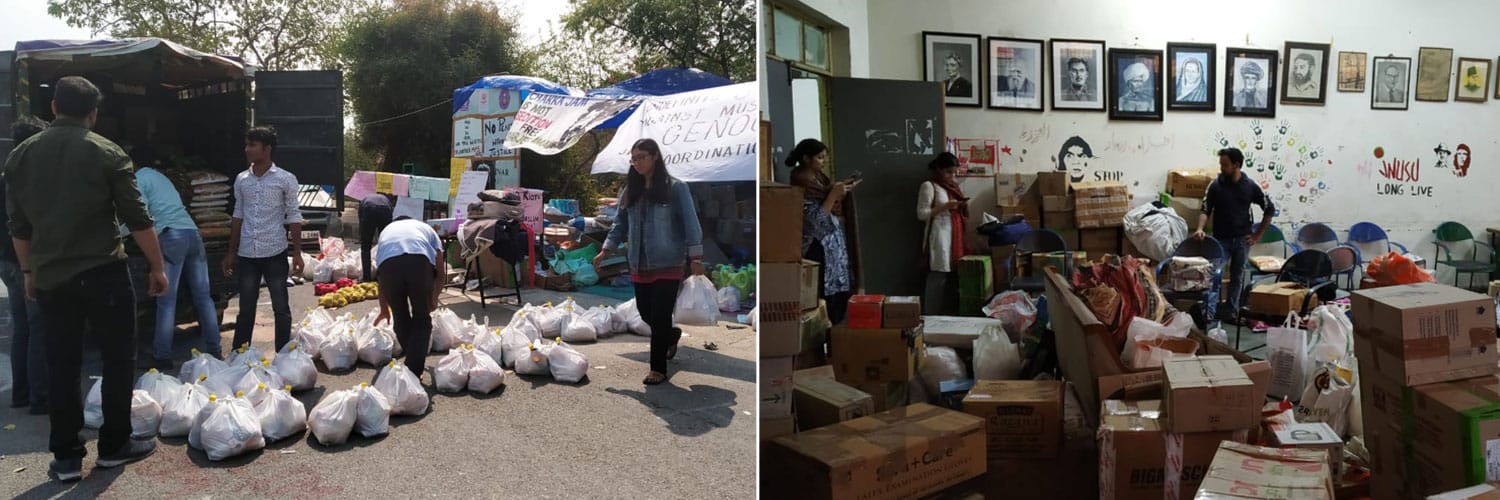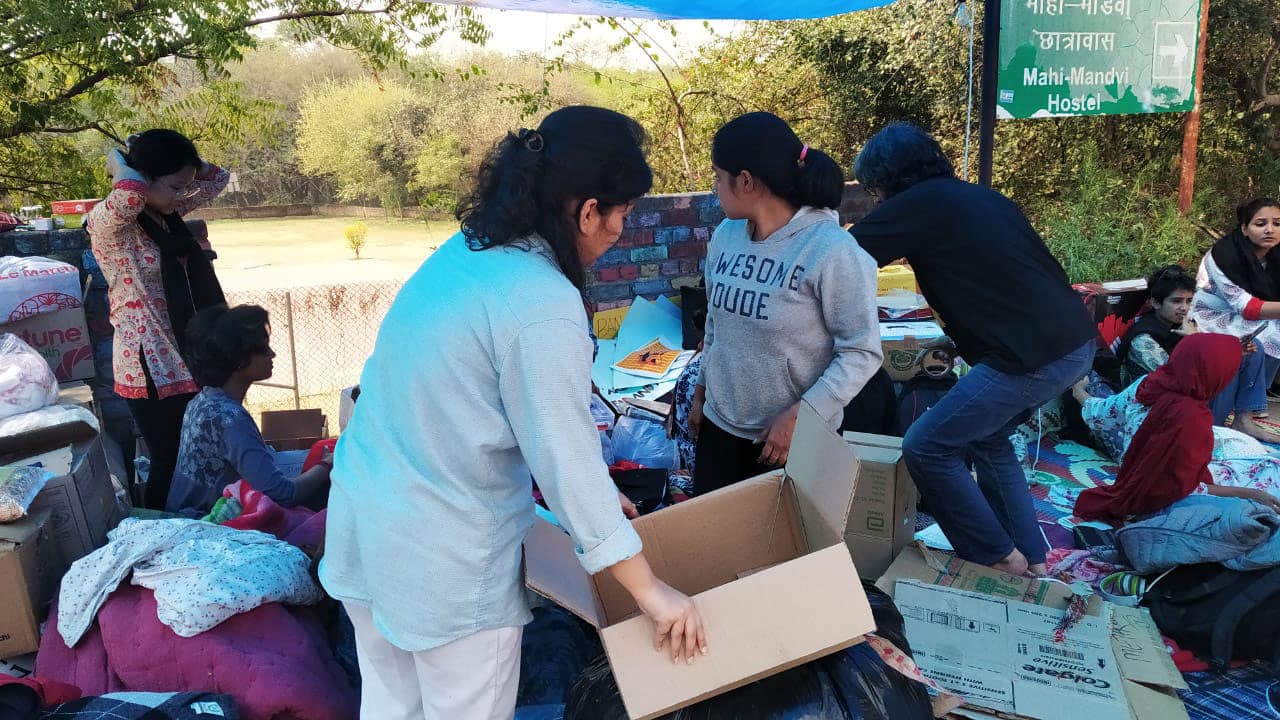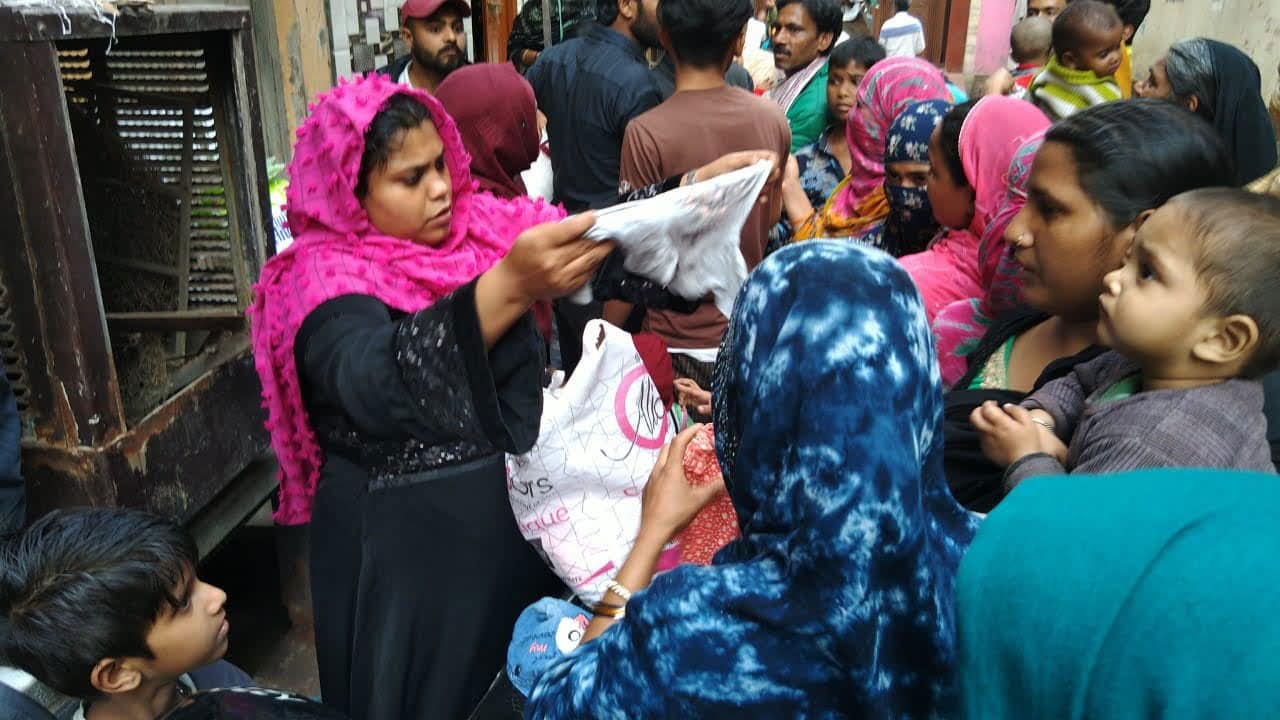Just a month before the Covid-19 scare almost locked the entire nation behind the doors, between 23 and 25 February, many neighborhoods of North-East Delhi were being turned into ashes. Followed by provocative and vitriolic communal statements by politicians at the preparation level of the consorted riot, a violent rampage broke out in the neighborhood since the night of 23rd February. It cost more than 53 lives, hundreds of injuries as well as lakhs of human property loss. In the process, localities were gutted in the fire; households were looted and women were sexually abused. Though a section of media termed it as sectarian violence, Muslims were indeed primarily at the receiving end of it.
Post-riot, in the absence of an active and functioning state apparatus for rehabilitation, alongside many established organizations and groups, an 11-members group of JNU students, formed the JNU Coordination Committee (JNUCC) to volunteer for relief-works and support the riot survivors.
The volunteer group came under the umbrella tag, The Muslim Watch. Their primary move was to set up a camp, recognized as the main collection center for South Delhi. The camp was established for collecting and distributing relief materials and funds, enabling small-scale entrepreneurship among the survivors, paying the medical bills of the injured as well as for GPS mapping and ground-level fact-finding.

So far, approximately they have reached more than 1000 households for help, collected monetary support, and grocery materials worth of close to 6 to 7 lakh and 2-3 lakh rupees respectively based on extensive donations. In fact, when the collection center was flooding with plenty of supplies, sorting and dispensation of these perishable materials according to the needs of the survivors were the primary challenges in-hand. The JNU community stood behind them to rally their support for the cause.
On the 28th of February, the group made its first visit to the riot-affected New Mustafabad area for an overall assessment of the scenario. As a result, they were not only exposed to a series of heart-wrenching testimonials but also were to witness the havoc it wrecked in the locality. In the middle of the chaos on the ground, they were met with three levels of difficulties.
First, the police were non-cooperative, if not hostile, and therefore, taking immediate actions like lodging FIRs, catering to the survivors’ injuries, supplying basic household supplies, etc. were indeed challenging. Second, due to the novelty of dealing with a pogrom of this scale at the heart of Delhi, no organized system with the state-civil society consonance was in place. Third, and most importantly, building trust and gaining the confidence of the people whose lives have been clouded in fears and insecurity could have never been an easy task.
“Despite it being an arduous commute of close to three hours every day, the hopes and happiness in the eyes of the locals were the motivation enough for us not to give up,” Sameer, one of the Muslim Watch volunteers and a third-year Ph.D. student of JNU, puts it eloquently.

A resident of Khajuri Khas who is a recently retired government employee, Md. Zaheer’s four-storied house was set ablaze and all the valuables were ruthlessly looted. A teary-eyed Zaheer resented the loss of his coveted and loved house by saying “Zindagi ka saara sarmaya ek aag ne jala diya(All the capital of my life was burnt by a fire)”. Though in despair, Zaheer thanks the almighty for sparing his and his family’s life. Md. Tahir, a resident of the same area, was met with the same fate as Zaheer’s. The third floor of his house was invaded, torched and looted by the miscreants and his paralyzed wife had to be transferred to a neighbor’s house through the terrace.
Amidst the blatant occurrences of violence, Salehah, a New Mustafabad resident herself, cooked the meals for the residents of her entire Gali overlooking her personal safety concerns. Similarly, Mushtari Khatoon, also lovingly called ‘Chachi’ in the Khajuri Khas locality, set out to help people stuck in the riots. Despite being in distress, their spirits never failed to amaze The Muslim Watch volunteers.

As of now, during the Covid-19 lockdown, most of the internally displaced people from these localities have gone back to their respective villages from where they had originally migrated to Delhi, while a handful of them returned to their previously abandoned and attacked houses in the city. The Muslim Watch envisions at consolidating their efforts to bring sustainable changes in the lives of minorities.
Riots, by definition, are the acts of perpetrating deliberate violence with the intent of scaring and putting the ‘other’ in their places. Its orchestration is an expression of mob-mentality incited by venomous spites. No matter which side one chooses to be on amidst the politically polarizing environment, including the luxury of remaining neutral, the outcome bears the tragic consequences of lost lives, vandalized localities, and scarred memories.
The students alongside the riot-survivors, as the citizens of the country, are setting the examples of indomitable spirit and glistening humanism in the times of utmost crisis. They are combining the ‘struggles’ of the survivors with the ‘rays of hopes’ from these students. A contribution towards the cause may not harm, after all!
Would you care to choose ‘humanity’ over mindless blame-games?

